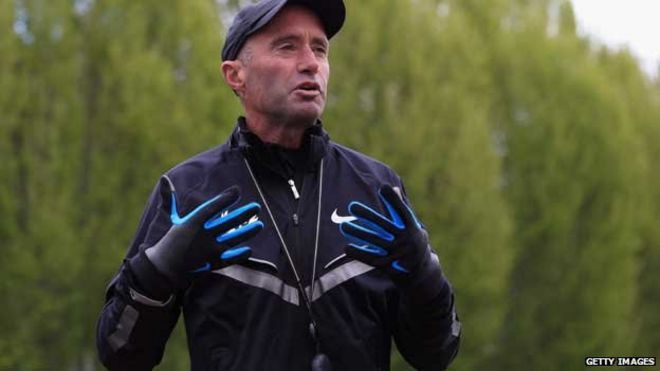Eliud KipchogeKenyan
- 35 years, 1m67, 52 Kg
- Marathon runner, 230km week
- Married, 3 children
- Olympic gold and world recordman on the marathon in 2h1m39s
Goal: Run the marathon in 1h59m in Vienna in the next few days
Mental Attitude (mindset)
- Training, passion and self-discipline
- He writes down everything he does in notebooks.
- He writes down his feelings to remember them
- Read Aristotle, Confucius and Paul Coelho
- He runs with his mind relaxed
- “Respect a law, that of never telling you lies”
- “Only the disciplined are free, the others are slaves to moods and passions.”
- “When I train, I try to feel my body and give more and more. I don’t believe in limits.
- “You have to have a great conviction and a team that believes in you and supports you. Shoes are also important. And then you have to be stronger than any other runner in the past. Everything is possible”.
- “Marathon is life. If you want to be happy you have to enjoy life and I enjoy running the marathon. That’s why I smile.
He leads a spartan life:
- Always gets up at 5 a.m. in Kaptagat (Kenya)
- The weekend returns to the family
- He cleans his room and bathroom
- He washes his knits and socks in a bowl that he then spreads like the others
- In the afternoon, he drinks a cup of tea and eats a slice of bread.
(Source: Emanuela Audisio, Repubblica e correre.it)







